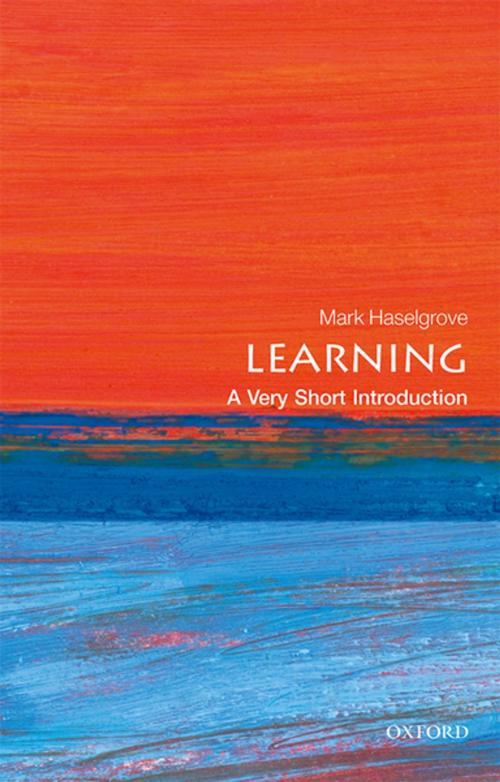Learning: A Very Short Introduction
Nonfiction, Health & Well Being, Psychology, Cognitive Psychology, Science & Nature, Science| Author: | Mark Haselgrove | ISBN: | 9780191512780 |
| Publisher: | OUP Oxford | Publication: | July 20, 2016 |
| Imprint: | OUP Oxford | Language: | English |
| Author: | Mark Haselgrove |
| ISBN: | 9780191512780 |
| Publisher: | OUP Oxford |
| Publication: | July 20, 2016 |
| Imprint: | OUP Oxford |
| Language: | English |
What is learning? How does it take place? What happens when it goes wrong? The topic of learning has been central to the development of the science of psychology since its inception. Without learning there can be no memory, no language and no intelligence. Indeed it is rather difficult to imagine a part of psychology, or neuroscience, that learning does not touch upon. In this Very Short Introduction Mark Haselgrove describes learning from the perspective of associative theories of classical and instrumental conditioning, and considers why these are the dominant, and best described analyses of learning in contemporary psychology. Tracing the origins of these theories, he discusses the techniques used to study learning in both animals and humans, and considers the importance of learning for animal behaviour and survival. ABOUT THE SERIES: The Very Short Introductions series from Oxford University Press contains hundreds of titles in almost every subject area. These pocket-sized books are the perfect way to get ahead in a new subject quickly. Our expert authors combine facts, analysis, perspective, new ideas, and enthusiasm to make interesting and challenging topics highly readable.
What is learning? How does it take place? What happens when it goes wrong? The topic of learning has been central to the development of the science of psychology since its inception. Without learning there can be no memory, no language and no intelligence. Indeed it is rather difficult to imagine a part of psychology, or neuroscience, that learning does not touch upon. In this Very Short Introduction Mark Haselgrove describes learning from the perspective of associative theories of classical and instrumental conditioning, and considers why these are the dominant, and best described analyses of learning in contemporary psychology. Tracing the origins of these theories, he discusses the techniques used to study learning in both animals and humans, and considers the importance of learning for animal behaviour and survival. ABOUT THE SERIES: The Very Short Introductions series from Oxford University Press contains hundreds of titles in almost every subject area. These pocket-sized books are the perfect way to get ahead in a new subject quickly. Our expert authors combine facts, analysis, perspective, new ideas, and enthusiasm to make interesting and challenging topics highly readable.















